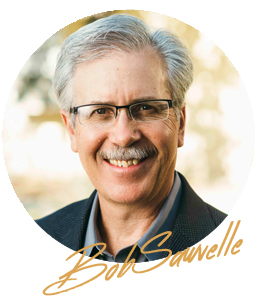
Lord, Teach Us to Pray, Part 7
In this series, we have been examining the Lord’s prayer, or prayer model. Last week we examined the petitionary aspect of prayer. After we ask God for daily needs and provision, we are to ask God for pardon. Jesus links the two petitions in order that we would recognize our need for confession and forgiveness as well. And He expects us to extend the grace of forgiveness to others.
Today, we are going to unpack the power of confession and forgiveness. These are life-giving Christian disciplines that are positive, not negative in our spiritual walk.
The disciples had witnessed Jesus’ supernatural lifestyle and concluded it was because He prayed consistently. They ask Jesus, “Lord, teach us to pray.” (Luke 11:1 NKJV) Jesus answers in Luke 11:2-4 by giving them what we refer to as the Lord’s prayer, but essentially gave them principles for effective prayer.
“And forgive us our sins, for we also forgive everyone who is indebted to us. And do not lead us into temptation, but deliver us from the evil one.” Luke 11:4 NKJV
Confession should be an integral part of prayer: “Forgive us our sins.”
In Christ, you have been forgiven and your sins have been cast into a sea of forgetfulness. Jesus’ prayer model keeps us humble before God and reliant upon His grace. But healthy, daily introspection is needed.
When sin is unconfessed and not brought under the blood of Christ, it becomes a hindrance to God’s grace and prayer being answered. Consider what the psalmist declared about sin, “If I had cherished sin in my heart, the Lord would not have listened.” (Psalm 66:18 NIV) But then the psalmist declares God has heard him. Why? Confession and forsaking of sin.
Scripture commands us to guard our hearts, “Above all else, guard your heart, for everything you do flows from it.” (Prov. 4:23 NIV) To guard, or to watch over our innermost thoughts, emotions, attitudes, and behaviors.
You and I have a responsibility to keep our heart… the Holy Spirit helps, but we must choose. Confession of faults, wrong attitudes, and sin is God’s way of keeping our hearts right before Him and others. Humility is required.
John tells us that if we believe we have no sin, we are deceived. “If we say that we have no sin, we deceive ourselves, and the truth is not in us.” (1 John 1:8 NKJV) But there is freedom from sin and guilt, “If we confess our sins, He is faithful and just to forgive us our sins and to cleanse us from all unrighteousness.” (1 John 1:9 NKJV)
God gives grace to the humble but opposes the proud. Confession is part of the process to break deception and pride in our lives—roots of sin.
King David, after his failure with Bathsheba, confessed, “For I acknowledge my transgressions, And my sin is always before me. Against You, You only, have I sinned, And done this evil in Your sight—” (Psalm 51:3-4 NKJV) We should be quick to confess, repent, and forgive!
When David confessed his sin, the Lord had mercy on him. David found pardon and restoration. David then prays, “Create in me a clean heart, O God, And renew a steadfast spirit within me. Do not cast me away from Your presence, And do not take Your Holy Spirit from me.” (Psalm 51:10-11 NKJV)
Over the years, I’ve witnessed marriages restored, lives restored, and others thrust into ministry because of confession, humility, and surrender to God. My own life is a testimony to the fruit of confession and forgiveness extended to others.
Forgiveness, “Forgive everyone who is indebted to us…”
After we ask God for daily needs and provision, we are to ask God for pardon. Jesus links the two petitions in order that we would recognize our need for confession and forgiveness as well. And He expects us to extend the grace of forgiveness to others.
Augustine labeled this request, “the terrible petition” because if we pray, “Forgive us our sins, for we also forgive everyone who is indebted to us…” and at the same time harbor unforgiveness, we are asking God not to forgive us.[1]
When John Wesley served as a missionary to the American Colonies, it is said that he had a difficult time with General James Oglethorpe—who was known for his pride and harshness. On one occasion, Oglethorpe declared, “I never forgive.” Wesley replied, “Then sir, I hope you never sin!” [2] To sin is human, to forgive divine.
A condition of effective prayer is a forgiving spirit, “And whenever you stand praying, if you have anything against anyone, forgive him, that your Father in heaven may also forgive you your trespasses. But if you do not forgive, neither will your Father in heaven forgive your trespasses.” (Mark 11:25-26 NKJV)
The power of faith and prayer is linked to living unhindered by offense and unforgiveness.
You can’t walk in the fullness of grace holding onto unforgiveness. A condition to answered prayer is living in forgiveness.
The Apostle John describes love as the primary attribute of God’s nature: “God is love … he who loves abides in God’s love” (1 John 4:8 NKJV). Sincerely loving others and abiding in God’s love hinges upon your ability to forgive those who have wronged you.
We live in a fallen world. People do and will continue to hurt us; some intentionally, others unintentionally, and often unknowingly. How you handle offenses is crucial not only to see answers to prayer, but also for your personal wellness and health.
Jesus made a profound statement in Luke 17:1, “It is impossible that no offenses should come…” (NKJV) In this passage, Jesus is explaining that people will hurt and offend us in life, and our response is to forgive.
The English word “offenses” is derived from the Greek word skándalon, which can mean a “stumbling block or a trap.” Skándalon denotes the act of placing a trap in someone’s way, much like the bait stick of an old-fashioned mousetrap.
In the New Testament, skándalon describes entrapment used by the enemy. In both the New and the Old Testaments, the real issue in skándalon is the way we relate to God. It is an obstacle to faith and hence a cause of falling and destruction. [3]
Jesus was telling his followers in Luke 17:1 that obstacles to our faith and traps from the enemy will occur in this life. How? When people wrong you, the enemy will attempt to trap (skándalon) you through unforgiveness. When you hold onto offense and unforgiveness, you have taken the “bait” of his trap and you are caught.
Harbored unforgiveness fosters bitterness and restricts God’s grace in our life. The only way out of the enemy’s trap and the bondage it places you in is to forgive the offender sincerely. Forgiveness is God’s way of providing us freedom from the unjust events that happen in life.
Moravian Revival of 1727, Corporate Example of Confession and Forgiveness
Initially: a divided Christian refugee community in the village of Herrnhut was made up primarily of the Moravian Church of the Brethren. With them were also Lutherans, Reformed, and Baptist believers. Their doctrinal differences created tremendous disunity.
On May 12, 1727, the community entered into a covenant to emphasize the points they agree on, rather than stressing their differences. A period of extraordinary prayer followed.
Results of Unity and Prayer: On August 13, 1727, the Moravian community was overwhelmed and filled with the outpouring of the Holy Spirit at their communion service.
There was a sense of the nearness of Christ given to everyone present, and also simultaneously to two members of their community working twenty miles away. They left that communion at noon, hardly knowing whether they belonged to earth or had already gone to heaven.
Testimonies: We saw the hand of God and were all baptized with His Holy Spirit. From that time scarcely a day passed but we beheld His almighty workings amongst us. A great hunger after the Word of God took possession of us so that we had to have three services every day (5 am, 7:30 am, and 9 pm).
Every one desired above everything else that the Holy Spirit might have full control. Self-love and self-will as well as all disobedience disappeared, and an overwhelming flood of grace swept us all out into the great ocean of Divine Love.
Results: The Herrnhut congregation (which never exceeded 300 people) started an around-the-clock prayer meeting, and it went on for 100 years. This was the first Protestant church body to begin missionary work.
In the 25 years following the outpouring of the Spirit on the congregation on Aug. 13, 1727, the Moravian missionaries had carried the gospel not only to nearly every country in Europe, but also to many indigenous tribes in North and South America, Asia, and Africa.
More than one hundred missionaries went forth from this village community in twenty-five years. This was more than what the whole Evangelical church had done in two centuries. The Herrnhut community became a spiritual retreat center, visited by people from all parts of Europe seeking to be saved or to be baptized in the Holy Spirit and with fire. [4]
As we endeavor to live lives of humility before the Lord and others, quick to confess, repent and forgive, His grace and power flow freely. History records times of corporate unity, humility, and forgiveness that permit God to shower His Church with His love and power to impact society and the nations.
It’s time Church for another awakening, let’s get back to the basics of prayer, humility, and forgiveness!

For a deeper look at this topic, watch the Passion Church message “Lord, Teach Us to Pray, Part 7”
[1] Haddon Robinson, Jesus’ Blueprint for Prayer (Grand Rapids, MI: Discovery House Publishers, 2000), 20-21.
[2] Ibid., 21.
[3] Gerhard Kittel, Gerhard Friedrich and Geoffrey William Bromiley, Theological Dictionary of the New Testament (Grand Rapids, MI: W.B. Eerdmans, 1985), 1037.
[4] THE MORAVIAN REVIVAL OF 1727 – BEAUTIFUL FEETBEAUTIFUL FEET (romans1015.com) , accessed 9/11/21. Adapted from Power from On High; by Rev. John Greenfield, Moravian Church by Wikipedia






